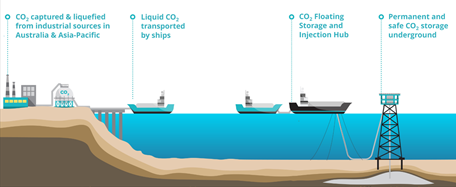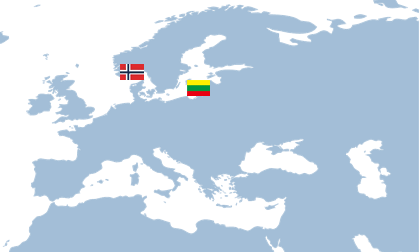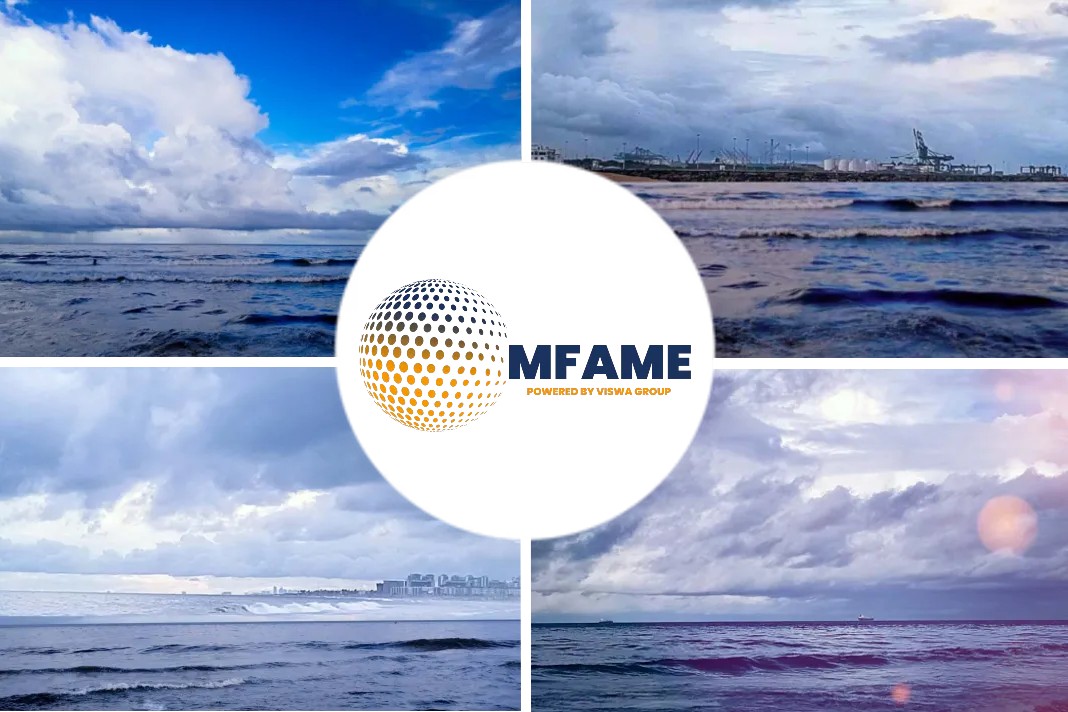TOKYO-Mitsui O.S.K. Lines, Ltd. (MOL; President & CEO: Takeshi Hashimoto) today announced that it joined the Australia-based Global CCS Institute (GCCSI), an international think tank on carbon capture and storage (CCS), which is recognized as a means to achieve a low-carbon and decarbonized society, says a press release published on their website.
Reduce Carbon Emissions
GCCSI’s mission is to accelerate the deployment of carbon capture and storage (CCS), a vital technology in future initiatives to reduce carbon emissions in the atmosphere, moving forward with trend surveys, while working to share knowledge and raise awareness of the technology. Its diverse membership includes representatives from governments, private companies, research institutes, and non-governmental organizations. GCCSI is headquartered in Melbourne and has offices in Washington, D.C., Brussels, Tokyo, Beijing, and Abu Dhabi.
Net Zero Emissions
Global CCS Institute CEO, Brad Page, welcomed MOL to the Institute’s fast-growing membership. “It is clear that the world requires CCS in very large volumes and in many places around the world to achieve net zero emissions around mid-century. Transporting bulk carbon dioxide for permanent storage will be a key part of the CCS chain and a growing business opportunity.”, Page said. “We look forward to working with MOL and other member companies specializing in transporting carbon dioxide to ensure that this vital element of the supply chain develops quickly.”
Development of the liquefied CO2
MOL entered the business of transporting liquefied carbon dioxide (CO2) by sea in March 2021, when it invested in Larvik Shipping AS (LS; Headquarters: Norway), which has managed industrial liquefied CO2 vessels in Europe over 30 years. By combining its accumulated experience in safe vessel operation and cargo handling with LS’s know-how and solid track record, MOL will examine ways to expand the scale of liquefied CO2 vessels and contribute to the further worldwide development of the liquefied CO2 ocean transport business.
Drawing upon the knowledge and accessed through its participation in GCSSI, MOL aims to expand both upstream and downstream in carbon capture, utilization and storage business value chains, and contribute to the achievement of a sustainable, decarbonized society.
CCUS value chain related projects
December 2020: Australian Offshore CO2 Capture and Storage Hun Project

March 2021: MOL to Move into Ocean Shipping of Liquefied CO2 Ocean Transport Business through Investment in Norway’s Larvik Shipping.
May 2021: Klaipedos nafta, Larvik Shipping, and Mitsui O.S.K. Lines will carry out a feasibility study for liquefied CO2 and hydrogen project in Klaipeda, Lithuania.

Did you subscribe to our daily newsletter?
It’s Free! Click here to Subscribe!
Source: MOL
















